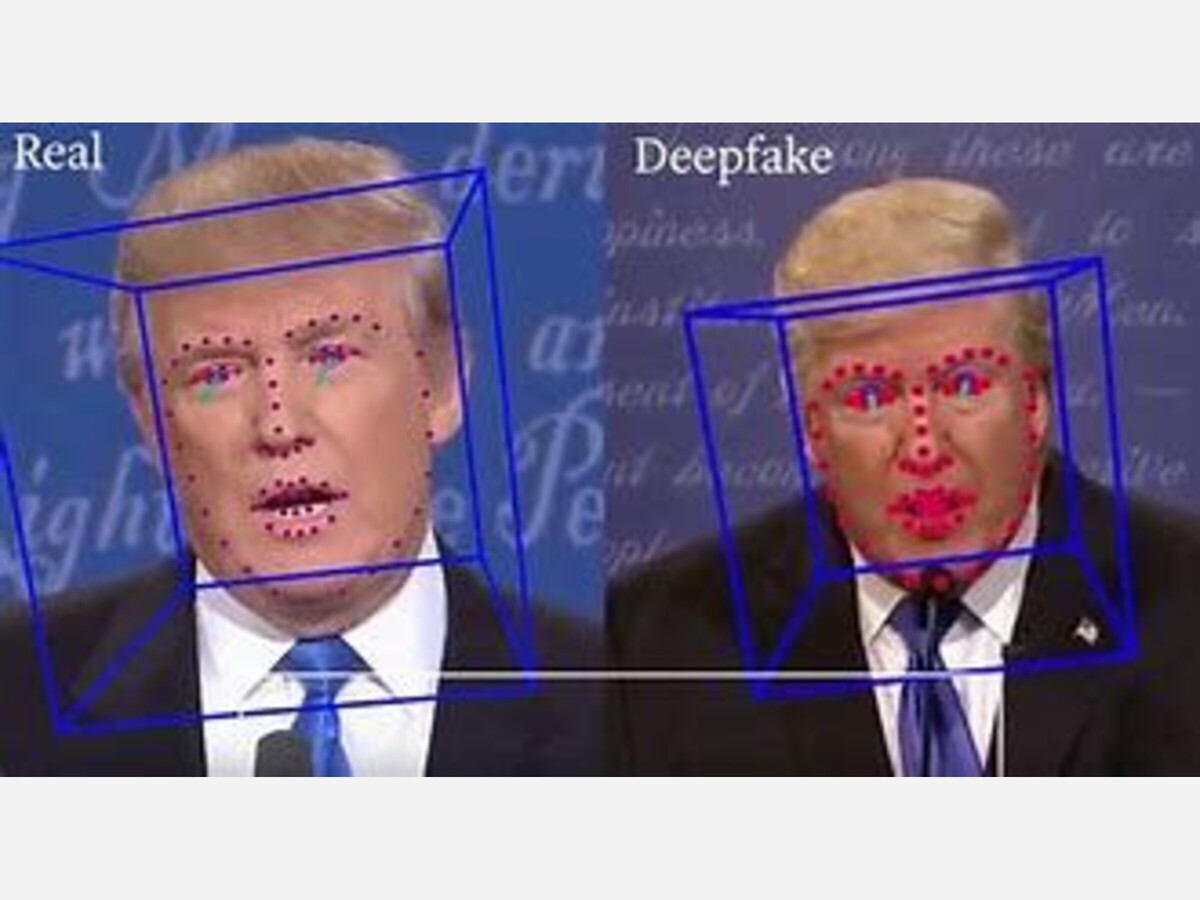Image


As the New Mexico Secretary of State is preparing a public education campaign for elections this year about mis- and disinformation and provide tools voters can use to understand whether something is real or representative of a candidate’s actual circumstances the state legislature has passed HB182. Deep Fake AI has been used to generate attack videos against former president Trump, Biden, Obama and others.
At stake is public belief in what is real and what is artificial. Concerns about deepfakes have been around for years. What's different now is technology has advanced and become accessible to anybody with a smartphone or computer and it puts the integrity of elections at risk. People are having fun using them for jokes and memes, like a viral TikTok trend of videos using synthetic audio to spoof Presidents Donald Trump, Barack Obama and Joe Biden playing video games.
But deepfakes are already being used for political ends. A story from NPR of March 2023 raised awareness and alarms demonstrating the ease of deep faking and political ads and the risks.
A fake that had the conspiracy fanatics going was reported by NPR Jack Posobiec, a right-wing activist known for promoting the Pizza-gate conspiracy theory, recently created a fake video of President Biden announcing a draft to send American soldiers to Ukraine. While Posobiec explained that the video was a fake created by AI, he also described it as "a sneak preview, coming attractions, a glimpse into the world beyond."
Many people went on to share the video without any disclaimer that it's not real.
Step forward to this month and Reuters reports, high-profile cases involving deepfakes and privacy infringement have garnered significant attention in recent years, underscoring the severe implications of this technology. These cases often involve public figures and illustrate the potential for harm that deepfakes pose. The most relevant example of this is the recent publication of sexually explicit AI-generated images of Taylor Swift on X, which attracted more than 45 million views, 24,000 reposts, and hundreds of thousands of likes and bookmarks for nearly 17 hours before being shut down. Despite being eventually shut down, the images quickly spread and were reposted across accounts and social media platforms causing significant damage. This incident, and others like it, speak to the challenges in stopping deepfake pornography and AI-generated images of real people and in controlling and containing the damages.
This is why the legislation before the New Mexico legislature is important. As per Reuters, the reality is that common law torts, criminal statutes, and current legal frameworks were not built, and did not anticipate the creation of real-time, realistic digital replicas, which leaves significant gaps in the protection laws. For instance, traditional privacy laws might not cover the nuances of digital impersonation or may not provide adequate remedies. The global nature of the internet complicates enforcement of privacy rights as perpetrators exist beyond legal reach of the victim's country.
In legal settings, proving that a video or audio recording is a deepfake can be challenging, especially as the technology becomes more sophisticated. As it becomes harder to authenticate the genuineness of such evidence, deepfakes can undermine the reliability of audiovisual material as evidence in legal proceedings. As courts deal with deepfake-related cases, developing precedents and case law will be crucial in this new legal minefield.
The New Mexico legislation is the first step in a path of needed legislation per 1st Amendment rights advocates that want free speech protected but also a clear disclaimer of what is real and what is false.
House Bill (“HB”) 182 proposes to add new election law provisions that address advertising using artificial intelligence. HB 182 would require specific disclosures if artificial intelligence is used in political advertising. Civil and criminal penalties would be associated with violations.
News organizations and media are exempted from any penalties related to improper disclosure.
When considering the regulation of AI in its 2023 report “Regulating AI Deepfakes and Synthetic Media in the Political Arena,” the Brennan Center for Justice found that that “instilling confidence in elections and preventing election-related violence are stalwart justifications for labelling and other transparency requirements at a minimum...” (Source: Regulating AI Deepfakes and Synthetic Media in the Political Arena Brennan Center for Justice.
Ultimately, the provisions of House Bill 182 would create are needed transparency to help build essential trust among New Mexico’s voters in the electoral process. It would make voters aware of the use of AI in the democratic process and increase an understanding of the existence of mis and dis- information.
Every member of the Otero County legislature voted against the AI bill political transparency bill HB182. Representative John Block opposed the legislation claiming it was "too broad" as reported by Source New Mexico.